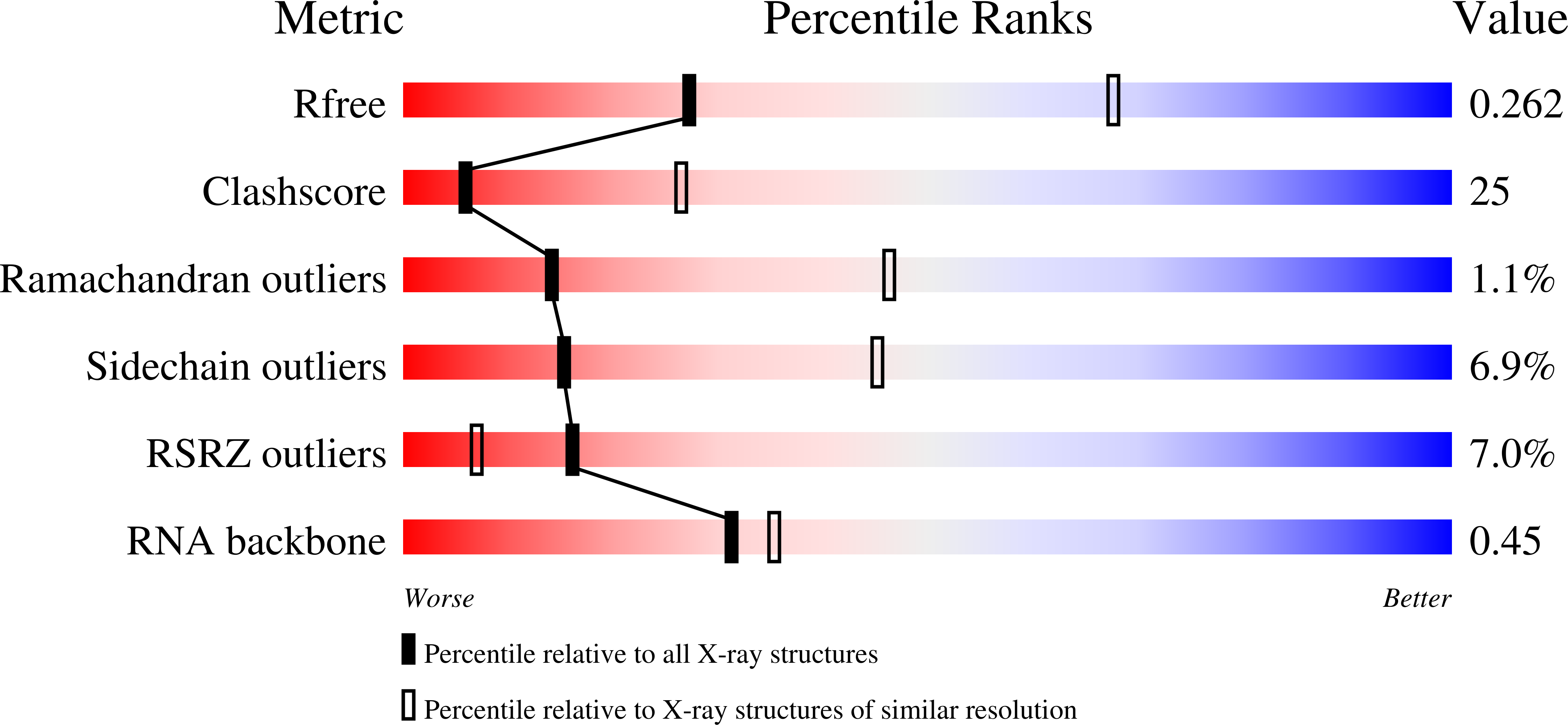Structure of human tryptophanyl-tRNA synthetase in complex with tRNA(Trp) reveals the molecular basis of tRNA recognition and specificity
Shen, N., Guo, L., Yang, B., Jin, Y., Ding, J.(2006) Nucleic Acids Res 34: 3246-3258
- PubMed: 16798914
- DOI: https://doi.org/10.1093/nar/gkl441
- Primary Citation of Related Structures:
2AKE, 2DR2 - PubMed Abstract:
Aminoacyl-tRNA synthetases (aaRSs) are a family of enzymes responsible for the covalent link of amino acids to their cognate tRNAs. The selectivity and species-specificity in the recognitions of both amino acid and tRNA by aaRSs play a vital role in maintaining the fidelity of protein synthesis. We report here the first crystal structure of human tryptophanyl-tRNA synthetase (hTrpRS) in complex with tRNA(Trp) and Trp which, together with biochemical data, reveals the molecular basis of a novel tRNA binding and recognition mechanism. hTrpRS recognizes the tRNA acceptor arm from the major groove; however, the 3' end CCA of the tRNA makes a sharp turn to bind at the active site with a deformed conformation. The discriminator base A73 is specifically recognized by an alpha-helix of the unique N-terminal domain and the anticodon loop by an alpha-helix insertion of the C-terminal domain. The N-terminal domain appears to be involved in Trp activation, but not essential for tRNA binding and acylation. Structural and sequence comparisons suggest that this novel tRNA binding and recognition mechanism is very likely shared by other archaeal and eukaryotic TrpRSs, but not by bacterial TrpRSs. Our findings provide insights into the molecular basis of tRNA specificity and species-specificity.
Organizational Affiliation:
State Key Laboratory of Molecular Biology, Institute of Biochemistry and Cell Biology, Shanghai Institutes for Biological Sciences, Chinese Academy of Sciences, Shanghai 200031, China.

















